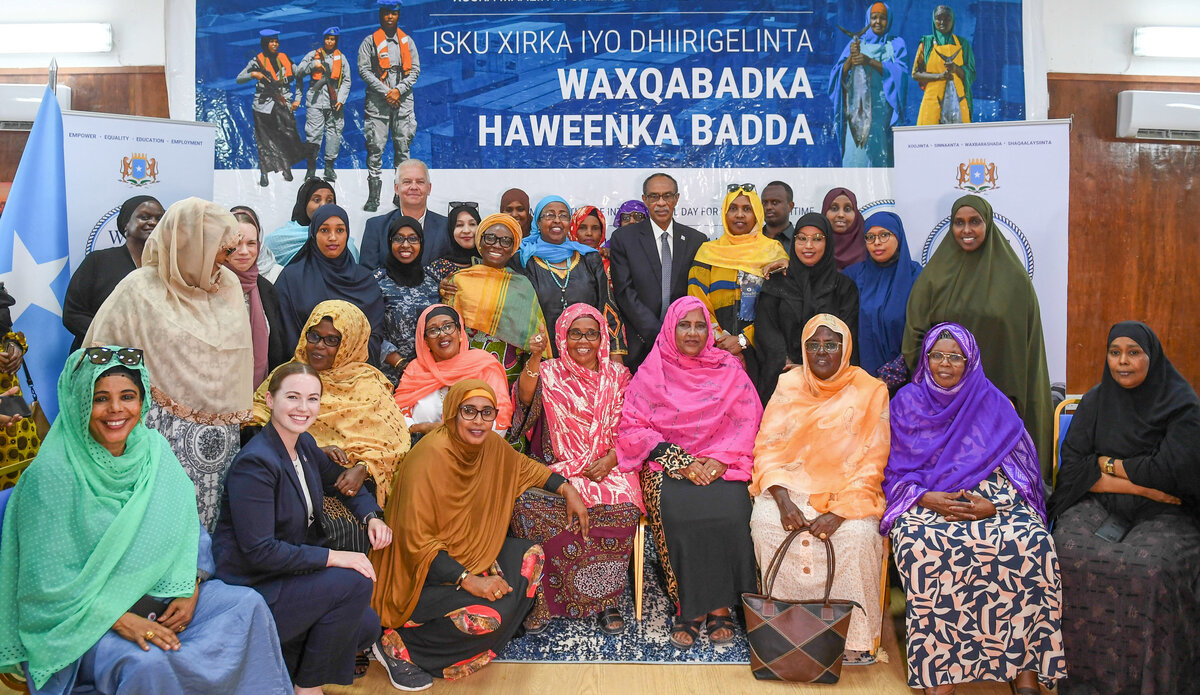Achievements and potential of Somali women celebrated on International Day for Women in Maritime
Mogadishu – The achievements and potential of Somali women in their country’s maritime sector were celebrated today at an event to mark the International Day for Women in Maritime.
“This is a day to celebrate the Somali women who contribute to the ‘Blue Economy.’ The current government has recognised their value and is committed to providing equal opportunities for women in the maritime sector,” Somalia’s Minister of Women and Human Rights Development, Khadija Diriye, said at the opening of the observance in the Somali capital, Mogadishu.
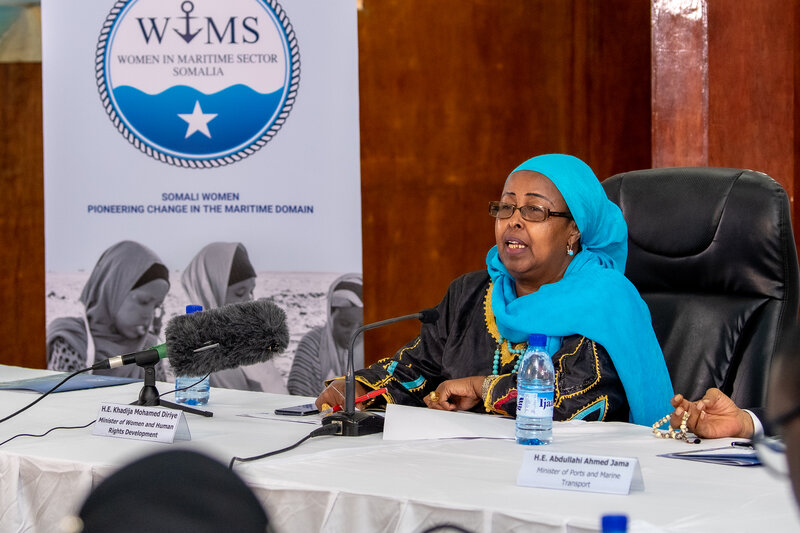
The gathering brought together various stakeholders from Somalia’s maritime sector, including the Federal Government of Somalia (FGS), Federal Member States, international partners, the private sector, academia, civil society organisations and the United Nations.
“Such a celebration shows that women operating across the maritime domain are provided visibility and equal opportunities to participate in and benefit from the maritime sector,” the UN Secretary-General’s Deputy Special Representative for Somalia, Anita Kiki Gbeho, said in her remarks.
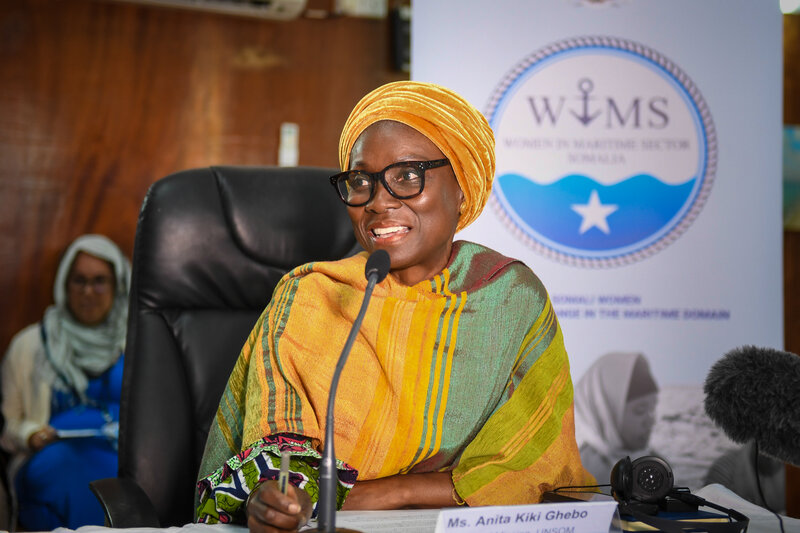
“Somalia’s recent launch of a ‘Blue Economy’ strategy that embraces the promotion of women in all aspects of the maritime domain is an example of the increased importance that Somalia places on women’s involvement in the country’s blue future,” she added.
The event was organised by the Federal Government of Somalia’s Ministry of Women and Human Rights Development, with support from the European Union Capacity Building Mission in Somalia (EUCAP Somalia) and the UN Assistance Mission in Somalia (UNSOM).
With an extensive coastline of around 3,300 kilometres and positioned at a strategic location on critical global shipping lanes, Somalia's maritime sector, with its abundant aquatic resources, is regarded as having enormous economic potential.
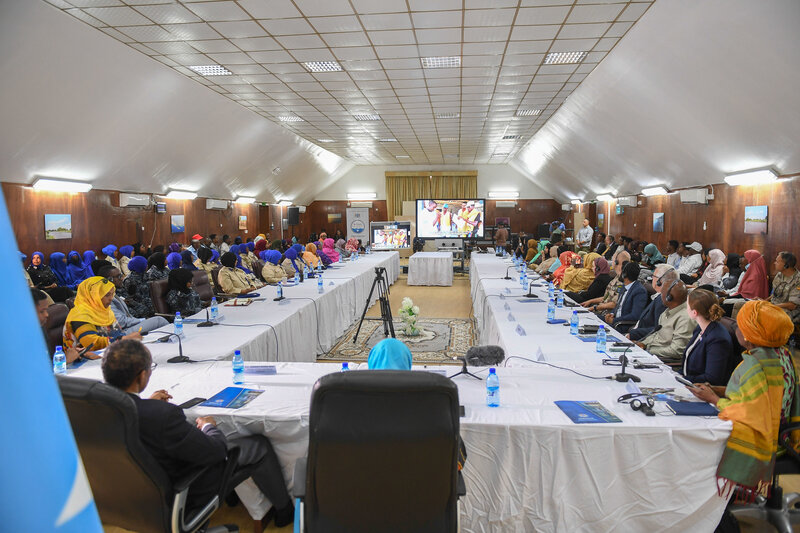
Action Plan
Despite the potential of the maritime sector, there is a significant shortage of marine expertise due to poor educational and institutional capability. Furthermore, gender inequality prevails, depriving Somali women and girls of essential rights and opportunities such as access to marine education and economic participation.
To address these challenges, the Federal Government of Somalia launched the Women in the Maritime Sector (WiMS) National Action Plan in February 2023. The Action Plan aims to enhance and empower Somali women in their country’s maritime sector through increasing their opportunities and highlighting their achievements.
The Somali-led process for the Action Plan began in 2019 and was developed through an inclusive approach involving various ministries from both the federal government and the country’s Federal Member States, with support from EUCAP Somalia and UNSOM.
In his remarks at the event, Somalia’s Minister of Ports and Marine Transport, Abdullahi Ahmed Jama, highlighted the need for more women to acquire maritime skills and commended the efforts of Somali women to contribute.
“I commend Somali women for their outstanding work. They are the main providers for most families, earning income from agriculture, fishing or meat trading. They have often outperformed men in their economic contributions, and they deserve more support,” he said.
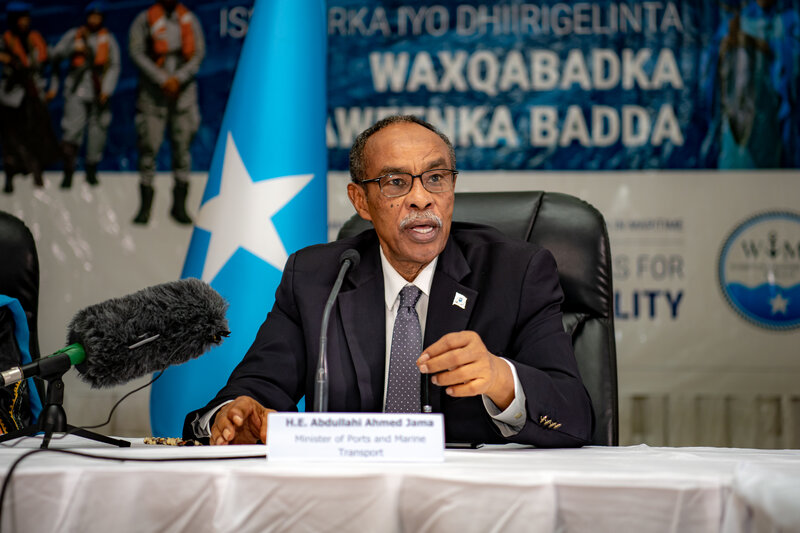
Women’s stories
Away from the speeches, the participants also heard from Somali women who shared their stories and achievements in the maritime sector.
“I owe a great deal to the women who mentored me in the maritime industry. I followed their advice and launched a successful fish processing business with my children,” owner of the Hiba fishing company based in Mogadishu, Malyun Sheikh Haidar, said in a pre-recorded video.
“I’m happy to see young women joining the maritime sector. We need a successor generation to take over from us and develop the country and utilise the resources from our vast coastline,” Director of the Somali Maritime Administration, Faduma Jilicow, said in a pre-recorded video.
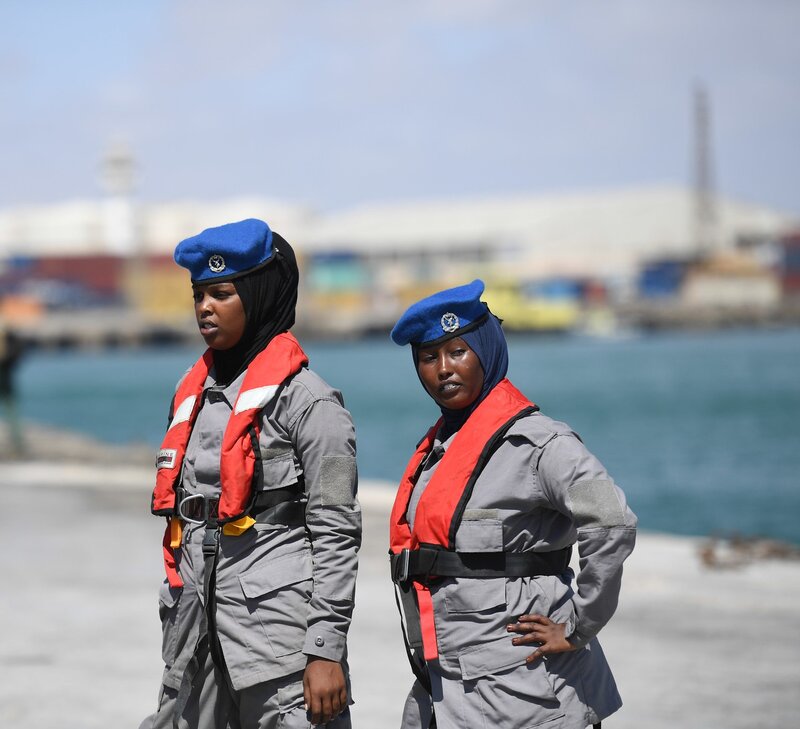
Wider inclusion
In her remarks, the Minister of Women and Human Rights Development also elaborated on the importance of realising gender equality across the board, noting the need to achieve it in all aspects of Somali culture.
“Article 3.5 of the constitution says that women must be included in all national institutions in an effective way, and we must work to make this a reality,” Ms. Diriye said.
Echoing these sentiments, Ms. Gbeho reaffirmed the UN’s commitment to support Somalia’s effort to empower women across all sectors in Somalia.
“As the UN, we pledge to continue accompanying Somalia on your state-building agenda – a journey that includes the full participation of women in the maritime sector and a journey that ends in a peaceful, stable, and prosperous Somalia, where no one, including women, are left behind,” the UN official said.
 UN
UN
